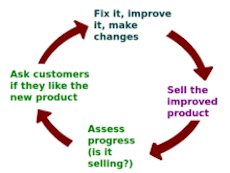Tom Scaletta, M.D., writes about how hospitals and other healthcare organizations need to step up their digital and other dialogue with discharged patients not only to monitor and improve clinical outcomes but to help get paid. He is medical director of patient experience and the emergency department chairman at Edward-Elmhurst Healthcare, an Illinois health system.
“This empathetic outreach not only helps build trust and loyalty among new and existing patients, it also creates a good business model. That’s because improving the patient experience pays dividends not only clinically, but financially as well,” he told Hospital Impact.
Consider:
“Today’s consumer-minded patients bear much more responsibility for their healthcare costs, and as a result are much more discriminating about the care and service they receive. Hospitals that extend care and demonstrate concern by using next-day patient follow-up can increase their perceived value among patients.”
“{H] ospitals that receive negative feedback the day after a patient encounter have the chance to address it promptly—and consequently create a good experience. When the {hospital} bill finally does arrive, the patient will recall the hospital’s prompt attention and response, and is more likely to pay in a timely manner.”
Finally, with “today’s social media explosion,… more patients share their experiences across multiple and far-reaching communication channels. Those comments have a long shelf life, often surfacing as consumers conduct digital searches for other patients’ experiences. Unfortunately, research has shown that people are more motivated to tell negative stories than positive ones, so the social network ‘echo effect’ can materially impact a hospital’s financial success.”
And “patient satisfaction creates loyalty, which prevents leakage to competitors. Coupled with the fact that satisfaction rates drive 30 percent of Medicare incentive payments, patient satisfaction has a significant impact on downstream revenue.”




